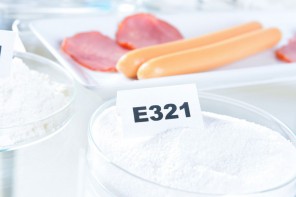As the deadline for introduction of the CO2 new vehicle emissions tax in South Africa approaches, government and major car manufacturers are still seeking agreement on key issues.
However, following the latest meeting on August 19, attended by the minister of finance and senior treasury officials, the parties agreed to the basic principles of the tax. The expedited introduction of cleaner Euro 4 or Euro 5 fuels in South Africa was also considered.
From September 1, 2010, CO2 emissions tax will apply to new passenger cars, including SUVs. The emission threshold is 120 g/km and a tax of R75 per gram per kilometre (which bumps up to R85.50 when VAT is added) over the threshold will be charged.
Furthermore, it is anticipated that effective April 1, 2011, the CO2 emissions tax will apply to double cabs, too. This will be based on an emissions tax threshold of 175 g/km, in line with the European Union’s planned emissions tax regime, and a tax per gram per kilometre over this threshold still to be determined by treasury. The introduction of CO2 emissions tax as it will apply to double cabs is a particularly sore point, though.
Clean fuels
The Minister of Finance in his February budget review said “the the emissions tax will initially apply to passenger cars.” Therefore, in calculating thresholds and levies, the sales volumes of passengers cars was considered only, excluding all light commercials, including double cabs. This was done, said the manufacturers, because there is currently no internationally accepted test method to test CO2 emissions for LCVs.
Naamsa, which represents the major car manufacturers and is supported by trade unions, dealer associations and components manufacturers, has previously also questioned Treasury’s logic in its approach to CO2 tax in South Africa.
In particular Naamsa has taken issue with the tax’s efficacy when cleaner fuels, which will automatically allow for the introduction of cleaner, more efficient engines routinely withheld by manufacturers on account of South Africa’s poor fuel quality, are not yet available.
Rather than penalise buyers of new vehicles, Naamsa proposed authorities instead consider an environmental levy on all fuels as a fair way to ensure all vehicles share the tax burden.
Since minibuses are used mainly for public transport purposes, these vehicles are exempt from emissions while the application of CO2 taxes to other light commercial vehicles will be considered at a later date.
With the introduction of CO2 emissions tax to passenger vehicles from September 1, prices of new vehicles is expected to increase by between 2.5 and 6%.
Surely this is only going to do further harm to an already struggling industry…? We are all for some form of penalty but surely an environmental levy on all fuels would be a better option?
Let us know your thoughts below.
Source: wheels24.com
The liveeco team






